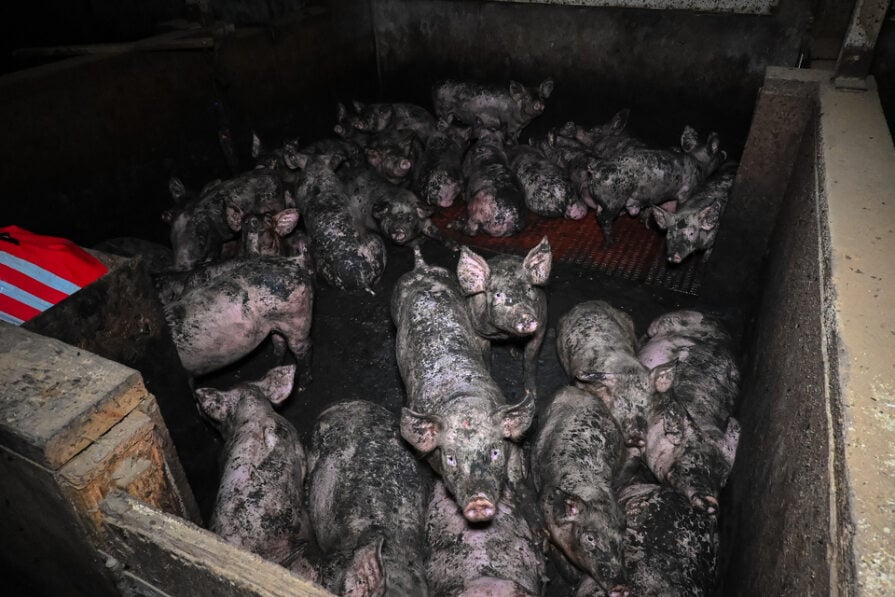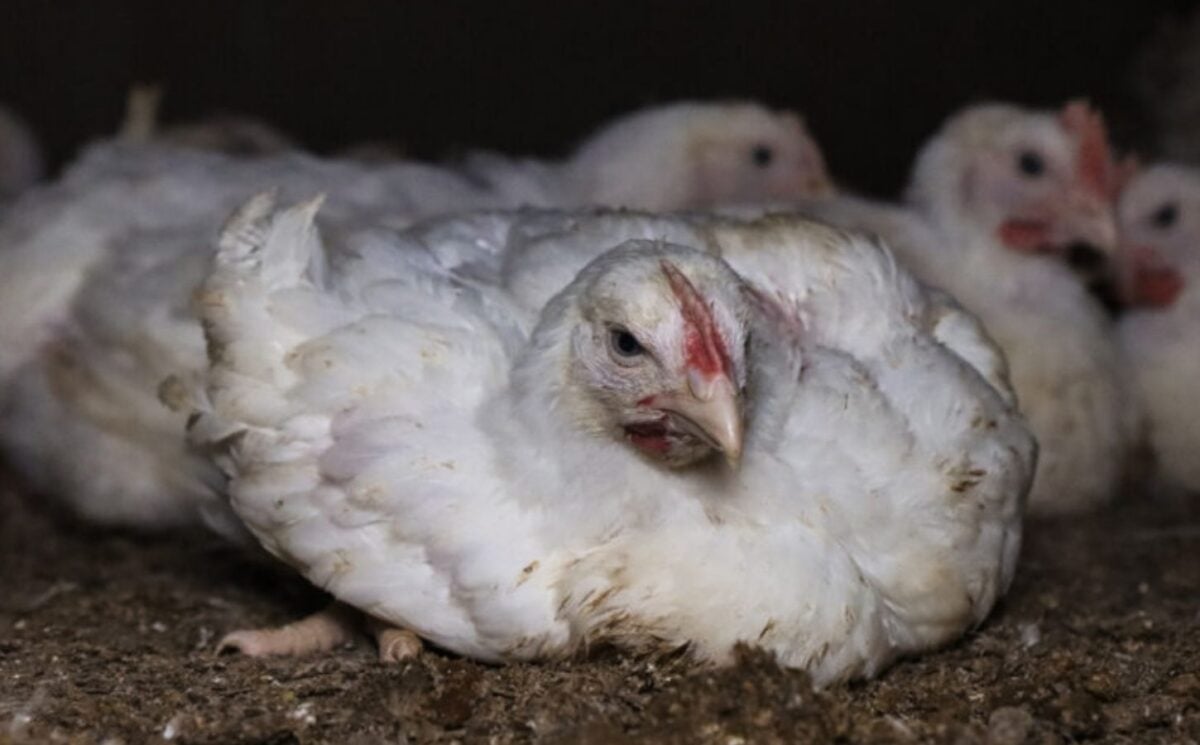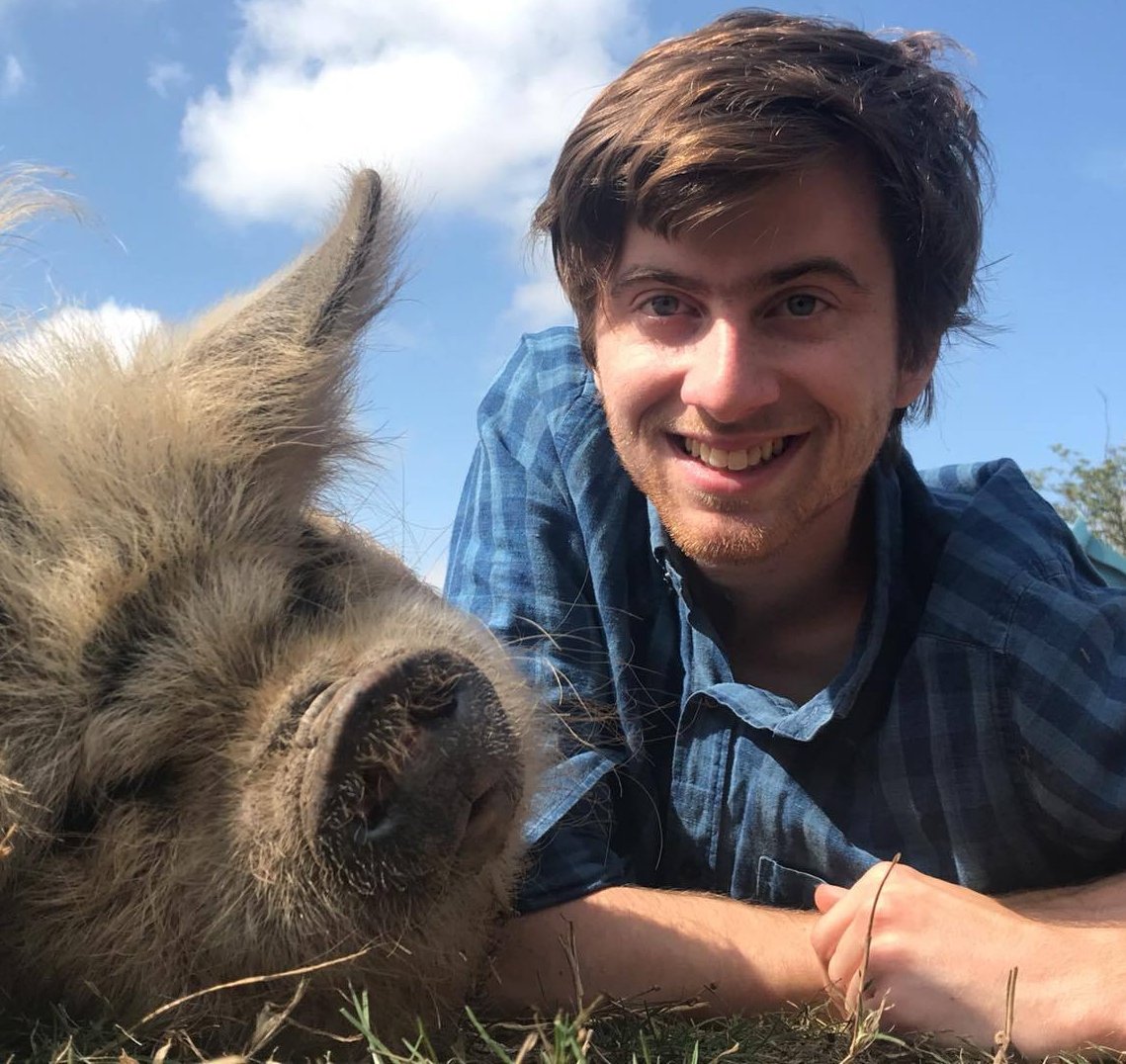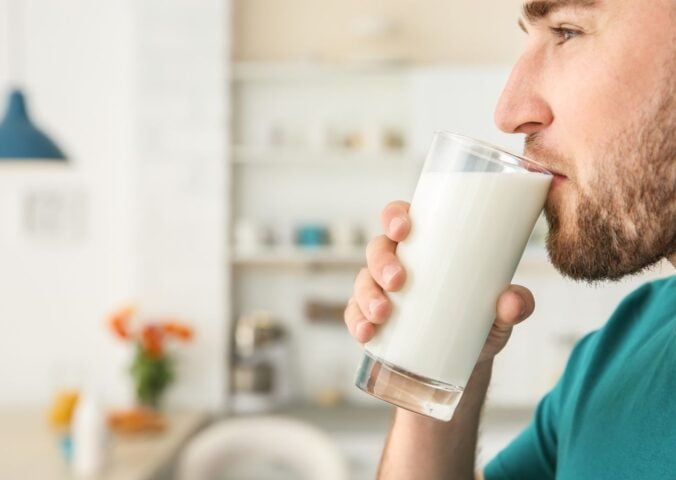No new intensive animal farms should be approved in the UK, according to researchers who analyzed the potential risks of influenza outbreaks.
Researchers at the University of Winchester and Griffith University investigated disease risks at UK farms in a recent paper. Based on their findings, they “strongly discourage” granting any future planning applications for industrialized intensive animal farms.
In the UK, more than 80 percent of farmed animals spend their lives on intensive farms, according to World Animal Protection.
“There is exceptionally strong evidence for a link between low animal welfare levels and high zoonotic risks,” the researchers wrote. Disease risk increases because of factors like “animal crowding, low genetic diversity, compromised hygiene, and high animal stress levels which compromise immune systems.”
Influenza risk of intensive animal farming

Diseases passed to humans from animals make up 75 percent of emerging infectious diseases.
Keeping pigs and chickens in close proximity to each other poses an especially serious risk of influenza. The researchers said that influenza outbreaks at indoor farms with good biosecurity show that monitoring is not enough.
At COP28, the UN Food and Agriculture Organization (FAO) released a roadmap that called for more intensification of animal agriculture.
This approach has received widespread criticicism. Dr Matthew Hayek, Professor of Environmental Studies at New York University, has called intensification a “zoonosis trap.” Packing more animals into smaller spaces reduces greenhouse gas emissions but raises the risk of viruses and bacteria.
Switch to plant-based food system
Instead of further intensification, the researchers of the new paper recommend a switch towards arable agriculture and de-intensifying remaining animal farms.
As a recommended first step, the researchers suggest lowering stocking densities to around five chickens per meter squared. Currently, Red Tractor standards allow 19 birds per square meter.
Giving animals more space, according to the researchers, is essential for minimizing the risk of disease transmission.
Ultimately, though, transitioning away from animal agriculture towards a plant-based food system is the best way to minimize disease risk. The Head of the World Health Organization recently called for people to eat more plants. Last year, Denmark became the first country to plot a route towards a plant-based food system.
Bird flu could kill penguins
The world saw its largest outbreak of avian influenza in 2022. Globally, more than 130 million “domesticated” birds died or were culled. Intensive animal farming causes serious disease risks for humans and other animals.
The virus has now unexpectedly surfaced in the Antarctic. Concerns are rising about isolated populations of penguins who have never been exposed to the virus before.




